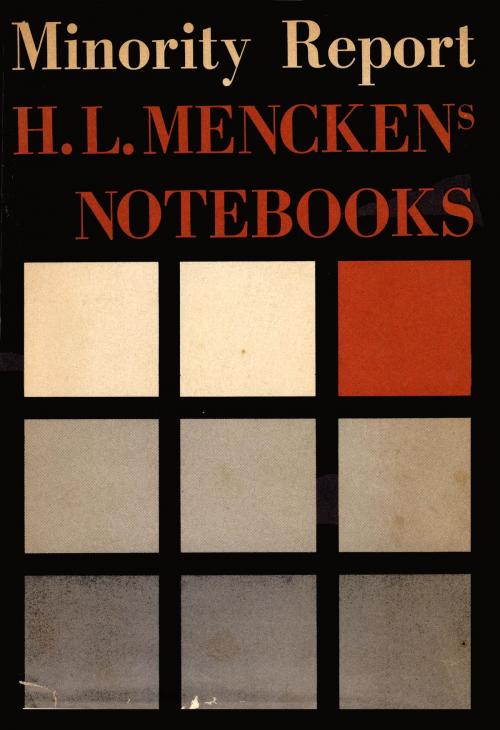Minority Report
Nonfiction, Entertainment, Drama, Anthologies, Fiction & Literature, Essays & Letters, Essays, History, Americas, United States, 20th Century| Author: | H.L. Mencken | ISBN: | 9780307830906 |
| Publisher: | Knopf Doubleday Publishing Group | Publication: | October 2, 2013 |
| Imprint: | Knopf | Language: | English |
| Author: | H.L. Mencken |
| ISBN: | 9780307830906 |
| Publisher: | Knopf Doubleday Publishing Group |
| Publication: | October 2, 2013 |
| Imprint: | Knopf |
| Language: | English |
In the fall of 1948 H. L. Mencken, then at the top of his unmatchable form (he had spoken at a meeting of the American Philosophical Society in Philadelphia only a little while before), suffered a stroke. He soon recovered his physical vigor, but writing was for him a thing of the past. Some months before his death, in going through some papers that he was putting in order for deposit in his beloved Enoch Pratt Free Library in Baltimore, his long-time secretary discovered these Notebooks. Mencken meant to publish them, as he makes clear in the preface, which also describes them better than I can.
Suffice it to say that here is one more generous sampling of the old Mencken battling fearlessly for the freedom and dignity of the individual and for the general decencies of life and attacking all that seems fundamentally hostile to man: government, organized religion, professional philosophers, and pedagogues above all. It shows his restless and inquiring mind ranging over many of the problems that beset all of us who ever take time out to think, all in his unmatchable style, which, however much it crackles, has the supreme virtue—which Henry always found in his own great model, Thomas Henry Huxley—that of never leaving you in doubt of its meaning.
Read the preface and note that this book is precisely what its title suggests; it consists of hundreds of notes—some only a few lines in length, some running to several pages, all reflecting a rigorous and exhilarating mind and personality. It may be a long time before another like him crosses our path.
In the fall of 1948 H. L. Mencken, then at the top of his unmatchable form (he had spoken at a meeting of the American Philosophical Society in Philadelphia only a little while before), suffered a stroke. He soon recovered his physical vigor, but writing was for him a thing of the past. Some months before his death, in going through some papers that he was putting in order for deposit in his beloved Enoch Pratt Free Library in Baltimore, his long-time secretary discovered these Notebooks. Mencken meant to publish them, as he makes clear in the preface, which also describes them better than I can.
Suffice it to say that here is one more generous sampling of the old Mencken battling fearlessly for the freedom and dignity of the individual and for the general decencies of life and attacking all that seems fundamentally hostile to man: government, organized religion, professional philosophers, and pedagogues above all. It shows his restless and inquiring mind ranging over many of the problems that beset all of us who ever take time out to think, all in his unmatchable style, which, however much it crackles, has the supreme virtue—which Henry always found in his own great model, Thomas Henry Huxley—that of never leaving you in doubt of its meaning.
Read the preface and note that this book is precisely what its title suggests; it consists of hundreds of notes—some only a few lines in length, some running to several pages, all reflecting a rigorous and exhilarating mind and personality. It may be a long time before another like him crosses our path.















